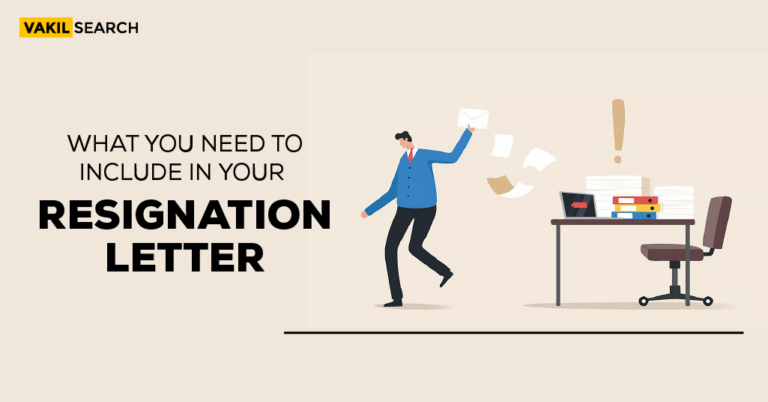It is being noticed that it takes almost 28-30 days to complete the process to resign as a company director. However, the exact duration might differ. Resigning as a company director involves a formal process that varies in length based on various factors. The main step in resigning is submitting a written resignation letter to the company. In addition, some resignations may require filing with government agencies, which can add to the time it takes to complete the process.
Overview of Resignation as a Company Director
The Companies Act of 2013 lays out in detail how a director may resign from their position as a director. It allows a director to resign from their position as a director by giving written notice to the company. They may also send the resignation notice in form DIR-11 to the Registrar of Companies. The filling of the form DIR-11 will not change the status of the director in the register of directors; it is merely information provided to RoC by a departing director.
It might take 28 days to 30 days for the whole process to be completed.
Steps Followed Before Resignation
Here are some of the steps involved in resigning as a company director and the general time frame for each step:
Preparation: Before resigning as a director, you should review your contract and any other relevant governing documents, and consider the implications of your resignation on your relationship with the company and any ongoing obligations you may have. This step can take anywhere from a few hours to several days, depending on the complexity of your situation.
Notification: Once you have decided to resign, you should provide written notice to the company and any other relevant parties, such as the company’s secretary or the other members of the board. This step can take anywhere from a few hours to several days, depending on the method of delivery and the response time of the recipient.
Acceptance: The company may need to accept your resignation before it becomes effective. This step can take anywhere from a few hours to several days, depending on the company’s procedures and the speed of communication.
Resignation process: After your resignation has been accepted, you will need to complete any other steps required by the company or the laws of the jurisdiction in which the company is incorporated. This may include completing any necessary paperwork, returning company property, and transferring any remaining obligations. This step can take anywhere from a few days to several weeks, depending on the complexity of your situation.
How Long Does It Take To Resign as a Director: The Duration
The exact duration of the resignation process as a company director can vary depending on the specific circumstances of each case. It’s difficult to provide a specific time frame as the process can take anywhere from a few hours to several weeks. Factors that can affect the duration include the complexity of your situation, the responsiveness of the company and other relevant parties, the number of steps involved in the resignation process, and the speed of communication and decision-making.
It’s important to keep in mind that resigning as a company director can have significant implications, so it’s important to carefully consider the implications of your resignation and to follow the proper procedures to ensure a smooth transition. If you have any questions or concerns about the resignation process, it’s best to seek the advice of a legal professional familiar with the laws of your jurisdiction.
Duties of a Company Director
- Duty of care: Directors are expected to act in the best interests of the company and to exercise a reasonable degree of care, skill, and diligence in performing their duties.
- Duty of loyalty: Directors are expected to act in good faith and to avoid conflicts of interest or actions that would harm the company.
- Duty of obedience: Directors are expected to comply with the company’s governing documents, laws, and regulations, and to act in accordance with the company’s mission and values.
- Fiduciary duty: Directors are considered fiduciaries of the company and are expected to act in a manner that protects the company’s assets and interests.
- Strategic planning: Directors are responsible for setting the company’s strategic direction, developing and implementing plans, and making decisions that are in the best interests of the company.
- Financial oversight: Directors are responsible for overseeing the company’s financial management and ensuring that the company is financially sound.
- Compliance: Directors are responsible for ensuring that the company complies with relevant laws, regulations, and ethical standards.
- Representation: Directors represent the company and are responsible for maintaining the company’s reputation and building relationships with stakeholders.
In conclusion, It’s important to follow the proper procedures when resigning as a company director to ensure a smooth transition and to avoid any legal or financial consequences. If you have any questions or concerns about the resignation process, it’s best to seek the advice of a legal professional familiar with the laws of your jurisdiction. For this purpose, contacting our legal experts ate Vakilsearch will be a relief.
Additionally, it’s important to consider the implications of your resignation on your relationship with the company and any ongoing obligations you may have before making a decision to resign.
Read More:










